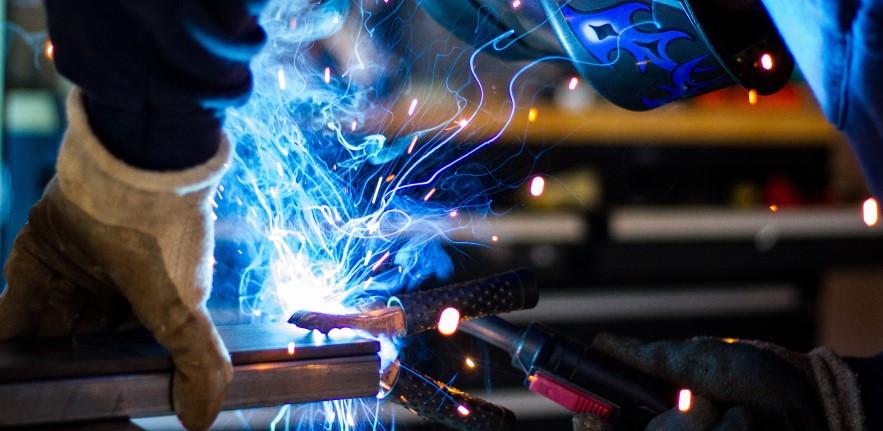
2 July 2020 – Could heavy industry companies capitalise on this moment to meet climate commitments, or will the opportunity be lost in the blast furnace of European politics, asks CLG Europe Programme Manager Chris Carroll.
With a responsibility for generating around a fifth of Europe’s total greenhouse gas emissions and a recent track record of stagnated CO2 reductions, Europe’s heavy industry has had a hard time of getting to grip with its climate commitments. But right now in Europe the industry is presented with a mammoth political opportunity to revamp its industrial mechanisms and put itself on course to net zero emissions by 2050. The question is, will heavy industry companies capitalise on this moment, or will it be lost in the blast furnace of European politics?
Let’s start by being realistic. The saying that heavy industry sectors – in particular cement, steel and chemicals – are ‘hard-to-abate’ in terms of cutting down on carbon is a fitting description and must not be overlooked. The current manufacturing processes are incredibly energy intensive, industrial plants have long lifespans and there is a ruthless level of competition within the sectors both on a regional and global level.
Significant hurdles therefore need to be addressed, including scaling up low-cost renewable electricity production, managing the high CapEx costs of new innovations and securing demand for low carbon materials. These are not simple challenges, but research shows there are a number of credible pathways out of this slump and towards a brighter, more competitive future for the benefit of business, the environment and society at large.
Long term legislative opportunities, short term stimulus packages
And right now, in Europe, heavy industry has a plethora of solutions up for grabs. Following in the footsteps of the Green Deal proposal of the European Commission, a new industrial strategy and an action plan on the circular economy presented earlier this year could help revitalise the industry’s competitiveness and climate credentials.
Here, options put on the table by the European Commission include a new focus on generating demand for low carbon materials through performance requirements and mandatory public procurement; there is a recognition that existing and new finance tools need to be developed in order to help industry reduce clean tech investment gaps and there is an expectation that stricter circular business model regulations will be revised in order to reduce waste and increase material efficiency.
Coupling these longer term prospects with much needed shorter term Covid economic recovery plans, industry could get a kickstart on its voyage to net zero. Here, the potential to drive funding into ‘shovel ready’ low carbon industrial technologies such as clean hydrogen or carbon capture and storage/use, offers up a once in a generation opportunity that would help not only towards decarbonisation and competitiveness goals but also for reshaping Europe’s workforce for the better– see this recent CLG Europe report on how climate policies today can help secure future jobs in Europe.
Nothing is certain, companies need to raise their voice
These issues were in fact central themes from a recent CLG Europe/WBCSD webinar that involved over 50 industry stakeholders including the likes of DSM, Hybrit, and LafargeHolcim and which looked at how EU policy can help decarbonise industry and what positive advocacy from a business perspective looks like in this area.
What was made clear from the webinar is that although the proposed strategies, action plans and recovery packages are positive, we are still not in a position to count our low carbon industrial chickens just yet.
Decision makers need to be supported in their endeavours to put in place workable frameworks that deliver in the real world, and not just on paper. It is also clear that EU and national government resources and budgets are limited and that each and every sector will be competing for supportive measures.
Heavy industry must therefore get behind these sorts of initiatives and avoid an advocacy approach that focuses in on contesting other important EU climate legislation - such as new economy wide CO2 targets for 2030. Otherwise, companies will just not appear as authentic in their approach to sustainability and it will risk the message to decision makers getting lost. This is crucial in particular for those companies who have set themselves ambitious climate commitments, such as those with Science Based Targets.
It was perhaps best summed up by Andreas Regnell, the new Chairman of the board at Hybrit - the fossil-free low carbon steel joint initiative - who said during the CLG/WBCSD webinar:
"It’s time that as businesses we stop forecasting and start backcasting. So rather than focus on the past in order to define the future, we need to define our future and decide on what needs to be put in place in order to achieve it."
For Europe's heavy industry, the moment to define its low carbon future is very much now.
Read the briefing How the EU Industrial Strategy and Circular Economy Action Plan can support the decarbonisation of European industry.





